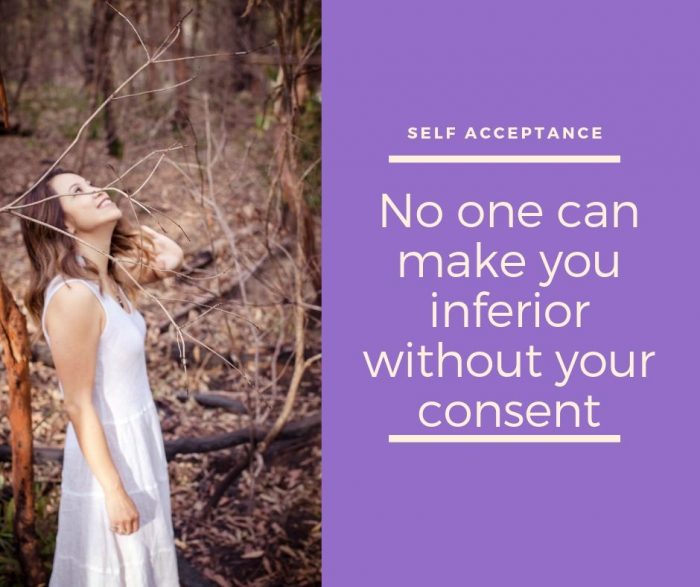Self worthiness or self worth is commonly defined as a sense of one’s own value as a person. It’s a perceived value that is conveyed to the others either directly or indirectly through how you interact socially.
Self-Worth vs. Self-Esteem
Although, self-worth is often used as a synonym for “self-esteem,” self-worth is less about measuring yourself based on external actions and more about valuing your inherent worth as a person. Whereas self esteem is defined as a confidence in one’s own abilities.
While there are many ways a person can self assess and rate their value as a human being, it’s important to consider that some of them are unhealthy ways even though society is indirectly embracing them. They are:
- External appearance
In a daily basis we are being targeted by media that sends a message that “you are only as good as you look” and many marketing strategies target people’s insecurities over everything from weight gain, aging, fashion or presentation.
Consider this:
- Beauty industry which includes any products or services that keep us looking or smelling our best is known to be resistant to economic downturn
- In 2015 the industry generated U$56.2 billions in the United States with hair care being the largest segment and skin care is a close second and growing fast with revenue in excess of U$11 billions in 2018.
- Zion research forecasted that global cosmetic product will reach U$863 billions by 2024.
Measuring your self worth based on external appearance is like creating your own source of misery, as it’s in the same way of believing that you are not good enough as who you are, and you are constantly comparing yourself to others.
- Material worth
Throughout humankind’s history, material worth has always been highly regarded as a measure of worth, power and influence. Unfortunately, nearly everyone to a certain degree believes that their worth is measured up against the size of their bank account.
This kind of measuring of self worth has been proven to drive people living beyond their means in attempt to feel valuable enough and it can affect all level of people even ones that considered to be wealthy. It’s also not a true reflection of who you are and your value as a human being.
- Personal connection, inner circle or personal relationship
Having an association with certain group of people like celebrities or famous people can give a feel of boost in self worth. Those that feel more worthy through association can be identified through name dropping during conversation.
The other trait of this group of people is that they feel the need to have a lengthy list of personal contacts and a busy social calendar to help them feel valuable and important. They also seek approval through admiration of those that they highly regard which indirectly could create a pattern of behavior as a people pleaser. Moreover, they will struggle to receive a praise and / or any positive reinforcement that geared genuinely to feel good just to be themselves.
- Social Status
Certain job titles which are usually associated with a high level of pay is regarded higher than others, for example lawyer, doctor etc. When a person introduces themselves with a focal point of their title, they associate their self worth with what they do. And their career reinforces their identity of being accepted in society which can be a major identity crisis when they lose their job.
In some cultures they adopt a caste system which offers higher privilege to those who related by blood, for example royal family, Brahmins in Indian. Being part of the elite group of society can create a separation with the rest of society and create false feeling that they are better than everyone else.
- Achievement
Feeling proud of your accomplishment is a natural feeling and should be embraced upon. However, when you are basing your self worth predominantly on your achievement, it could drive behavior of seeking success to feel good about yourself.
This kind of behavior can imperil your physical and emotional health as you will never feel accomplish no matter how much you achieve. Or you cannot accept or move forward when there are mistakes made or when things don’t go as planned.
Self worth measure from spiritual perspective
There is an inherent problem with society’s focus on self worth that is a measure of oneself against others, rather than just one’s life values. It’s a competitive culture that urges one to be special and above average to feel good about themselves. This creates a constant internal battle that no one can ever win.
Instead, self worth should be based on own internal values through self acceptance. That is being able to accept yourself as a unique human being that comes with your own unique qualities. Perception of certain traits as either strength or weakness, or an experience as a success or failure is merely a human’s judgement.
When we accept ourselves a spiritual being that is having human experience, we let go the need to measure our self worth against anything external. In fact, we should raise our self worth just simply because we are enough to be who we are.
We have the equal right as anyone else to set what our self worth should be and no one can make us to feel inferior unless we allow it. We cannot control others but we can control how we react to it and we always have the options to leave anyone that makes us to feel less than our true worth.
We manifest and receive in accordance to our self worth, consider self worth as a price tag that we set at marketplace. So if we have the entitlement to set it high, why do we choose to set it low?











Read 0 comments and reply